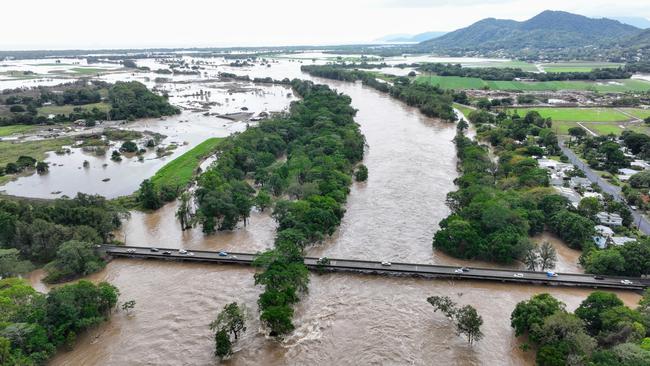Failings of warning system to be examined
A “dog’s breakfast” of a warning system will be put under the spotlight in review of Queensland’s severe weather season.
Cairns
Don't miss out on the headlines from Cairns. Followed categories will be added to My News.
Confusing, unclear warning messages during ex-Tropical Cyclone Jasper will be included in a wide-ranging review of Queensland’s 2023/24 severe weather season.
Several Cairns councillors were critical of the new Australian Warning System when TC Jasper hit in December, saying messages were at first too alarmist and then failed to inform people of genuine danger quickly enough.
The once-in-a-century flooding which followed ex-TC Jasper destroyed 18 homes and severely damaged 168 more.
Councillor Brett Olds, now deputy mayor, described the warning system as a “dog’s breakfast” in the immediate aftermath of the flooding.

Minister for Police and Community Safety Mark Ryan announced the review in a statement to state parliament on Thursday.
“I can inform the house that Queensland’s office of the Inspector General of Emergency Management (IGEM) will conduct a review of the severe weather events relating to the 2023/24 severe weather season,” Mr Ryan said.
“The review will include the severe storms, flooding, tropical cyclones and tropical lows and bushfires and will also include any further significant weather events that may occur prior to the official conclusion of the severe weather season … many Queenslanders were harshly impacted by these events.
“The damage bill is significant and many people are still feeling the effects.”

Communities in remote areas of FNQ are yet to recover from the flooding, with some residents only just returning to particularly severely-affected places such as Wujal Wujal in southern Cape York.
Cyclone Jasper was the first major test of the Australian Warning System since it was introduced in Queensland on November 1, 2023.
The severity of the flooding which followed ex-TC Jasper highlighted several failings with the new system.
Residents were initially warned of dire conditions while the cyclone was passing over, despite not being in immediate danger.

After the flooding hit, locals received messages when it was already too late.
“Every severe weather season is different and we can always learn from what has happened,” Mr Ryan said.
“The IGEM will assess many factors including preparedness, response, assistance provided and also the timing and effectiveness of the new Australian warning system messaging … for the purposes of the review the IGEM will work closely with all relevant local state and commonwealth government agencies including the BOM and other relevant agencies and entities.”
The final report, which will also include consultation with impacted communities, is due by the end of September.
More Coverage
Originally published as Failings of warning system to be examined




